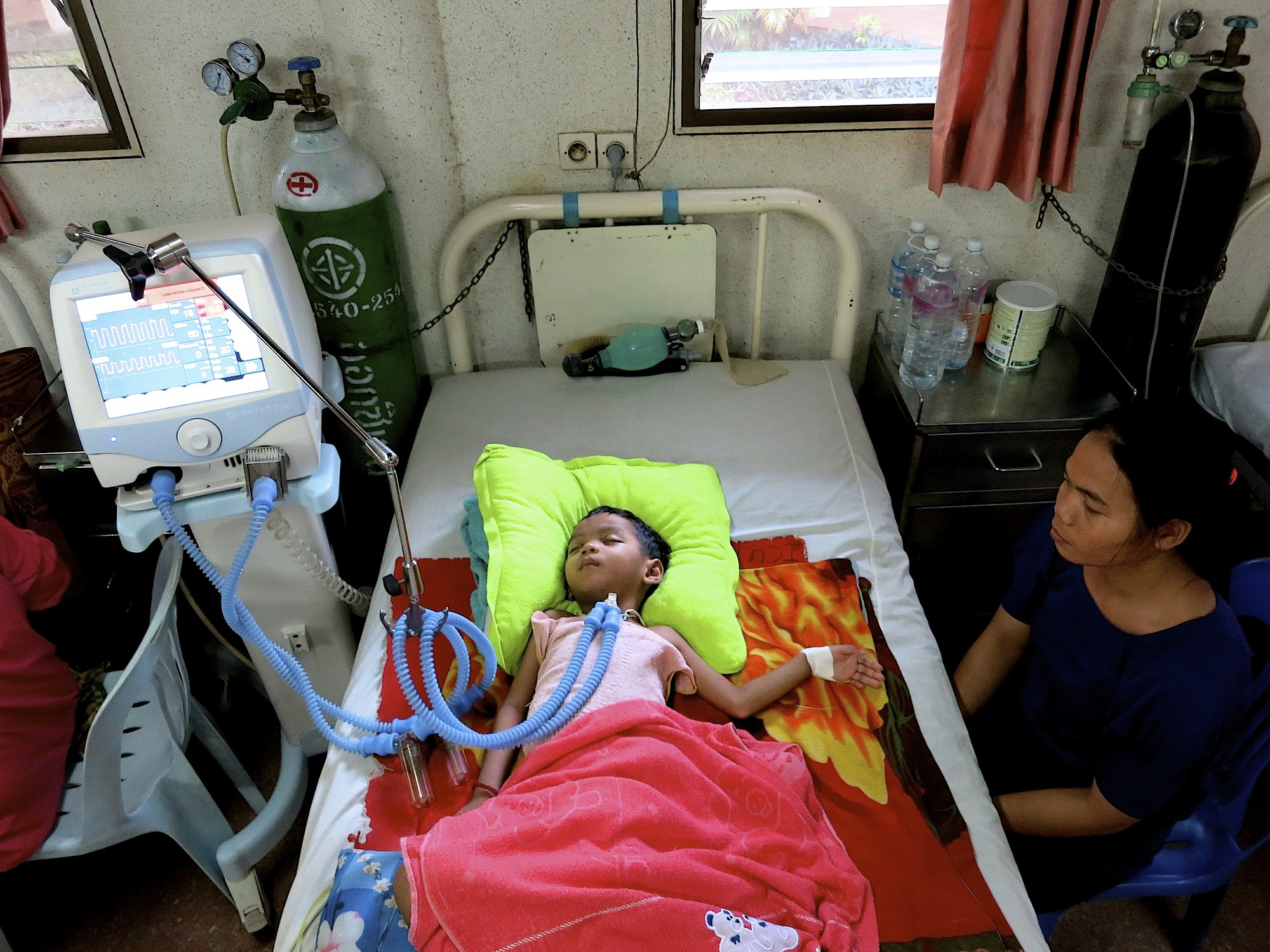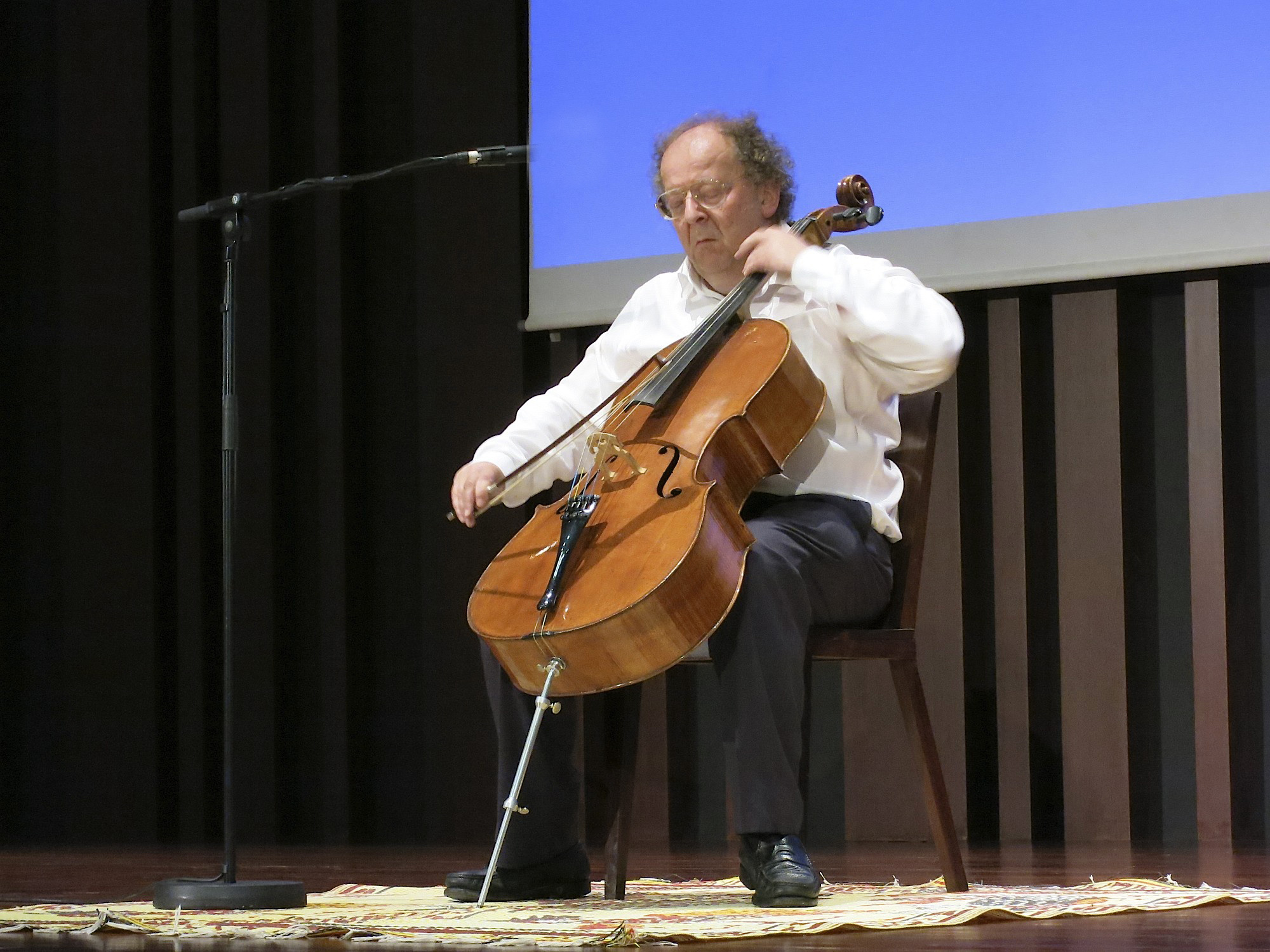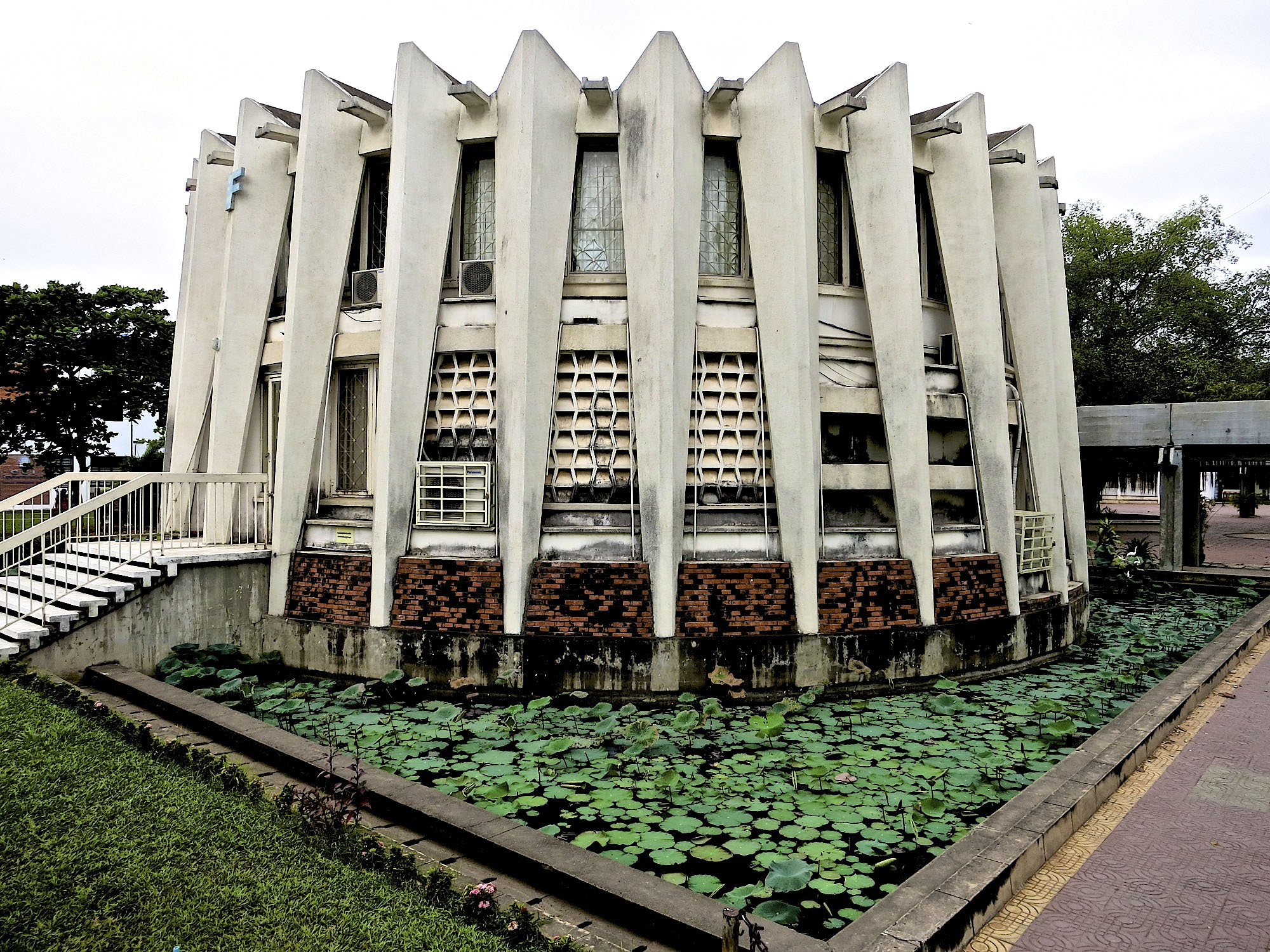A Swiss doctor who brought hope to Cambodia

A charismatic Swiss doctor – and cellist – has been a key player in Cambodia’s recovery from years of war and terror, providing much needed health care for mothers and children.
Beat Richner, also well known in Switzerland under his nickname of Beatocello, gives a concert every Thursday and Saturday evening in the Kantha Bopha hospital in the northwestern town of Siem Reap, close to the World Heritage site of Angkor Wat.
“Health is the main reason why poor families become ruined. By providing completely free care our hospitals enable mothers to stay with their sick child, making it easier for them to get better,” he tells his audience, before picking up his bow and playing “The Song of the Birds”, made famous by Pablo Casals.
The first Kantha Bopha hospital was established in Phnom Penh by the former king, Norodom Sihanouk, in 1962 after one of his daughters, Kantha Bopha, died of leukaemia. There are now six Kantha Bopha children’s hospitals and maternity clinics. Richner told swissinfo.ch just why they are so important.
“In public hospitals, everyone pays. In private ones, it’s even more expensive. That’s why 3,000 adults leave every day to get treatment in Vietnam or in Thailand, while the richest ones go to Singapore or Paris. But with children, you have to be very quick. Even Prime Minister Hun Sen [the country’s strongman since the 1980s] brings his grandchildren to us.”
Naly Pilorge, director of the Cambodian League for the Promotion and Defence of Human Rights (LICADHO) told swissinfo.ch that Cambodian public hospitals are like a slaughterhouse.
“People have to pay and fight to get a family member seen by a doctor,” he said. “I am beginning to prefer visiting prisons.”
Today there several Kantha Bopha establishments which provide paediatric and maternity services in Phnom Penh and Siem Reap.
In the last 20 years they have treated 10.4 million outpatients and 1.13 seriously ill children in hospital, with more than 120,000 seriously ill children treated in 2012 alone.
The annual budget is $40 million. As of 2013, Switzerland will contribute $4 million a year. It is the only state, apart from Cambodia, to support these hospitals. The rest of the budget comes from donations, mainly from Switzerland.
Royal support
Norodom Sihanouk, who died in 2012, supported the hospitals to his dying day. Before he was deposed in 1970, he had already established a high-quality health infrastructure, but 30 years of war, culminating in the regime of the Khmer Rouge from 1975 to 1978, swept this away.
Richner went to Cambodia in 1992, after the Cambodian government asked him to rebuild and manage the Kantha Bopha hospital in Phnom Penh. Sihanouk, who became king again in 1993, was an important supporter.
“Without the king, it could all have come to an end in 1995,” says Richner. “Both the Cambodian government and the WHO were against our plan, but Sihanouk donated land within his palace grounds to build Kantha Bopha 2.
It was initially very tough. He always stepped in to support us, although there was strong opposition initially, including in Switzerland.”

A Khmer rouge legacy
The brutal Khmer Rouge regime was ousted in 1978, but its legacy lives on.
“The main health problem is still tuberculosis, which affects about 65 per cent of the Cambodian population – the highest rate in the world. It is a direct consequence of the Khmer Rouge regime, with its 300 prisons and torture centres,” Richner explained.
“Prisons are a major hotbed for the transmission of tuberculosis. Now, given how widespread this infectious disease is, children are more at risk of other diseases, even if they don’t develop tuberculosis itself.”
But there are other problems too, Richner pointed out.
“The government is not doing enough to prevent epidemics, like dengue fever. The reason is corruption in the public health system. This corruption means that patients die, deprived as they are of proper care.”
Government spokesman Khieu Kanarith disagreed.
“We do take preventative action. For example, we were not as badly affected by bird flu as some of our neighbours were.”
As for the endemic corruption in the country, the government is trying to tackle this as well.
“We don’t have all the necessary regulations. But we have ordered all the ministries to make public the prices of all the services they offer. It is now illegal not to follow these prices,” he said.
Richner, born in Zurich in 1947, qualified as a doctor in 1973, and went on to specialise in paediatrics at the Zurich Children’s Hospital.
He first went to Cambodia in 1974, sent by the Swiss Red Cross to work at the Kantha Bopha Children’s hospital in Phnom Penh, but was forced to leave when the Khmer Rouge took power.
He was invited back to Cambodia at the end of 1991, and moved to Phnom Penh in 1992, where he rebuilt the Kantha Bopha hospital. It reopened at the end of 1992. Since then several more institutions have been built, in Phnom Penh and in Siem Reap.
According to Vann Molyvann, who served as a minister to King Sihanouk between 1956 and 1970, “Beat Richner practically saved Cambodia with his activities over the last 20 years.”
Richner developed his character of Beatocello in 1972, whom he describes on his website as a “poetic and musical comedian or clown”. He has given many fund-raising performances, mainly in German-speaking Switzerland, but also abroad. He has also published a number of children’s books to accompany his performances.
What next?
The government and many ordinary Cambodians want to turn the page, and concentrate on economic growth – which reached 7.1 per cent in 2011, according to the World Bank.
Pierre Tami, Switzerland’s honorary consul in Cambodia, agrees.
“Humanitarian aid is coming to an end. It’s giving way to trade, to provide work for young Cambodians,” he told swissinfo.ch.
But without financial support for the six Kantha Bopha hospitals, young Cambodians could well still fall victim to an epidemic. Without the high quality care dispensed by its well-paid Cambodian doctors – more than $1,500 (SFr1,390) per month, which is ten or 15 times more than in public hospitals – young people simply will not get proper treatment, with all the relapses and other complications that that implies.
Richner admits that keeping up the financing – some $40 million per year, made up mainly of private donations from Switzerland – is the Achilles heel of the hospitals.
This financial dependency is the target of repeated criticism of his work by the World Health Organisation and certain non-governmental organisations. Without him, without his fame and his charisma, can the institution collect funds?
Richner is well aware of the problem. So he is preparing for what happens next. And there are some encouraging signs.
“In 2012 they realised at the very top level of government that our system is probably the only one capable of functioning in Cambodia. That year we received $3 million from the government, $1 million from the Cambodian Red Cross [headed by the wife of the prime minister], and $1.5 million from the Bayon foundation [headed by the prime minister’s daughter],” he said.
Khieu Kanarith explained government policy.
“We want to increase our national contributions to ensure that these hospitals continue in the long term.”
Richner is also hoping to find support in new countries, starting with China and other regional states. He is also working with the children’s hospital in Zurich: the idea is that the heads of departments there should give their backing to the Cambodian managers of the Kantha Bopha hospitals over a period of several years.
The Swiss government has increased its funding to the Kantha Bopha hospital from SFr3 million to SFr4 million at the beginning of this year.
The Swiss Agency for Development and Cooperation is due to open an office in Phnom Penh in March.
Switzerland’s honorary consul Pierre Tami says he plans to launch a special effort this year to attract Swiss investors to Cambodia.
There are some 160 Swiss citizens currently living in Cambodia.
The number of Swiss tourists in the country has increased 25% annually and reached 15,000 in 2011 says Tami.
Official data show a total of 3.5 million tourists, mainly from countries in the region, visiting Cambodia in 2012 – up 25% on 2011.
(Adapted from French by Julia Slater)

In compliance with the JTI standards
More: SWI swissinfo.ch certified by the Journalism Trust Initiative










You can find an overview of ongoing debates with our journalists here . Please join us!
If you want to start a conversation about a topic raised in this article or want to report factual errors, email us at english@swissinfo.ch.